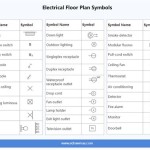The Best Houseplant Fertilizer: Essential Aspects to Consider
Nurturing healthy and thriving indoor plants requires providing them with the essential nutrients they need. One crucial aspect of plant care is choosing the right fertilizer. In this comprehensive guide, we'll delve into the key factors to consider when selecting the best houseplant fertilizer to ensure optimal growth and well-being for your cherished greenery.
Essential Nutrients for Houseplants:
Houseplants, like all living organisms, require a balanced diet to thrive. The primary nutrients they need include nitrogen (N), phosphorus (P), and potassium (K), often referred to as the "NPK" ratio. These elements are vital for various plant functions such as:
- Nitrogen (N): Promotes leafy growth and helps produce chlorophyll, essential for photosynthesis.
- Phosphorus (P): Supports root development and stimulates flowering.
- Potassium (K): Enhances water uptake, disease resistance, and overall plant vigor.
Factors to Consider When Choosing a Houseplant Fertilizer:
When selecting a houseplant fertilizer, consider the following factors to ensure it meets your plants' specific needs:
1. Plant Type:
Different plant species have varying nutrient requirements. Some plants, such as ferns and succulents, prefer low-nitrogen fertilizers, while others, like flowering plants, require a higher nitrogen content.
2. NPK Ratio:
The NPK ratio indicates the proportion of nitrogen, phosphorus, and potassium in the fertilizer. Choose a fertilizer with an appropriate ratio for your plant type. For general-purpose use, a balanced 10-10-10 fertilizer is often suitable.
3. Liquid or granular vs. Slow-release:
Liquid or granular fertilizers provide nutrients quickly, while slow-release fertilizers gradually release nutrients over time. Slow-release fertilizers are convenient and prevent over-fertilization, making them a good choice for beginners.
4. Organic or synthetic:
Organic fertilizers are derived from natural materials, such as compost or fish emulsion, and release nutrients slowly. Synthetic fertilizers provide nutrients more rapidly but may contain harsh chemicals.
5. Frequency and dosage:
The frequency and dosage of fertilization depend on the type of fertilizer used and the plant's growth rate. Follow the manufacturer's instructions carefully to avoid over- or under-fertilizing.
Benefits of Using the Right Houseplant Fertilizer:
Using the best houseplant fertilizer can provide numerous benefits, including:
- Healthy and vigorous growth: Essential nutrients promote robust root systems, lush foliage, and vibrant blooms.
- Improved flowering: Phosphorus and potassium contribute to abundant blooms and enhance color intensity.
- Enhanced tolerance: Well-fertilized plants are better equipped to handle environmental stresses, such as pests, diseases, and drought.
- Increased lifespan: Providing adequate nutrition supports long-term health and longevity for your houseplants.
Conclusion:
Choosing the best houseplant fertilizer is crucial for nurturing thriving and radiant indoor greenery. By considering the essential nutrients, plant type, and specific factors discussed above, you can determine the optimal fertilizer to meet the unique needs of your houseplants. With the right fertilizer, your plants will flourish and bring joy and beauty to your home.

Decoding Houseplant Fertilizer What When How Much Ted Lare Design Build

The Best Fertilisers To Help Your Indoor Plants Thrive

Houseplant Fertilizer Basics How And When To Feed Houseplants

The Best Houseplant Fertilizer And It S Easy To Use Hrc

10 Best Houseplant Fertilizers 2024 Top Picks

13 Best Fertilizers For Houseplants 2024 The Strategist

Plantic Indoordrop Organic Liquid Fertilizer For Indoor Plants Growth Booster 250 Ml Fertlizer In Garden Outdoors

2024 S Best Fertilizer For Indoor Plants According To Our Testing

Houseplant Fertilizer Basics How And When To Feed Houseplants

How To Fertilize Houseplants And The 1 Best Fertilizer
Related Posts








